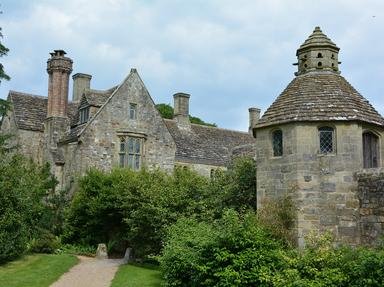8. What is the name of the heroine - or some would say the anti-heroine - of "Northanger Abbey"?
From Quiz Northanger Abbey
Answer:
Catherine Morland
"No one," the novel begins, "who had ever seen Catherine Morland in her infancy, would ever have supposed her born to be a heroine." Catherine grows up with her own awkward, slightly gawky, charm, amusingly at odds with the appeal of a conventional literary heroine. A country vicar's daughter, one of ten children, Catherine develops during her teenage years an exaggerated taste for the fashionable Gothic romances that the circulating libraries were bursting with. "From fifteen to seventeen," we read, "she was in training for a heroine; she read all such works as heroines must read." She embodies, however, as the story develops, her author's concern to point up, for all of us, what might be called the supremacy of "life" over "literature" in our daily affairs: as Dr Norman Sherry, in his excellent little book on the Austen novels, insists, "the novel moves from...concern with literature to a concern with life...Catherine has first to learn to distinguish literature from life, and then how to learn the difficulties of ordinary life."
Miss Morland is generally believed - owing to a lot of inaccurate gossip when she goes to stay in Bath - to be an heiress, and she struggles half-comprehendingly with new social experiences and new moral dilemmas. "We see a child," writes Olivia Manning, "develop into a woman," as Catherine - not without great mental suffering - shakes off the false Romanticism which she had previously lapped up from her plethora of sensational reading. Jane Austen's own favourite novelist, the redoubtable Fanny Burney, seems to have shown her the way in many respects: of Burney, the "Oxford Companion" informs us that "her three major novels take as their theme the entry into the world of a young girl of beauty and understanding but no experience, and expose her to circumstances and events that develop her character; they display, with a satirical eye and a sharp ear for dialogue, the various social levels and the varied company in which she finds herself." This seems to be where "Northanger Abbey" - probably the first full-length novel that Jane attempted - takes its cue from.





 Quick Question
Quick Question = Top 5% Rated Quiz,
= Top 5% Rated Quiz,
 Top 10% Rated Quiz,
Top 10% Rated Quiz,